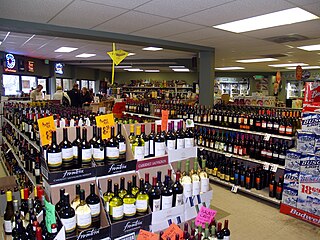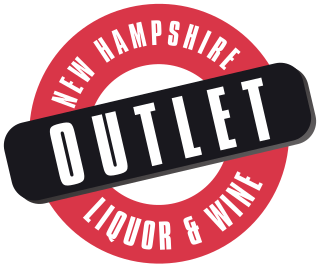Related Research Articles

Tennessee, officially the State of Tennessee, is a landlocked state in the Southeastern region of the United States. It borders Kentucky to the north, Virginia to the northeast, North Carolina to the east, Georgia, Alabama, and Mississippi to the south, Arkansas to the southwest, and Missouri to the northwest. Tennessee is the 36th-largest by area and the 15th-most populous of the 50 states. Tennessee's population as of the 2020 United States census is approximately 6.9 million.

The Tennessee General Assembly (TNGA) is the state legislature of the U.S. state of Tennessee. It is a part-time bicameral legislature consisting of a Senate and a House of Representatives. The Speaker of the Senate carries the additional title and office of Lieutenant Governor of Tennessee. In addition to passing a budget for state government plus other legislation, the General Assembly appoints three state officers specified by the state constitution. It is also the initiating body in any process to amend the state's constitution.

A liquor store is a retail business that predominantly sells prepackaged alcoholic beverages, including liquors, wine or beer, usually intended to be consumed off the store's premises. Depending on region and local idiom, they may also be called an off-licence, off-sale, bottle shop, bottle store or, colloquially, bottle-o, liquor store or other similar terms. A very limited number of jurisdictions have an alcohol monopoly. In US states that are alcoholic beverage control (ABC) states, the term ABC store may be used.

The Oregon Liquor and Cannabis Commission (OLCC), formerly known as the Oregon Liquor Control Commission, is a government agency of the U.S. state of Oregon. The OLCC was created by an act of the Oregon Legislative Assembly in 1933, days after the repeal of prohibition, as a means of providing control over the distribution, sales and consumption of alcoholic beverages. To this end, the agency was given the authority to regulate and license those who manufacture, sell or serve alcohol.

Alcoholic beverage control states, generally called control states, less often ABC states, are 17 states in the United States that have state monopoly over the wholesaling or retailing of some or all categories of alcoholic beverages, such as beer, wine, and distilled spirits.

The Texas Alcoholic Beverage Commission, or TABC, is a Texas public agency responsible for regulating, inspecting, and taxing the production, sale, and use of alcoholic beverages within the state. The agency was established in 1935 and is headquartered in Austin.

The New Hampshire Liquor Commission (NHLC) is a government agency of the U.S. state of New Hampshire. The commission regulates the sale of alcoholic beverages in New Hampshire, one of 17 alcoholic beverage control states.
The North Carolina Alcoholic Beverage Control Commission is an agency of the government of North Carolina within the state's Department of Public Safety.

The California State Board of Equalization (BOE) is a public agency charged with tax administration and fee collection in the state of California in the United States. The authorities of the Board attempt to ensure that counties fairly assess property taxes, collect excises taxes on alcoholic beverages, administer the insurance tax program, and other tax collection related activities.

A liquor license is a governmentally issued permit for businesses to sell, manufacture, store, or otherwise use alcoholic beverages.

The Delaware Division of Alcohol and Tobacco Enforcement (DATE) is a law enforcement agency of the State of Delaware and is a division of the Delaware Department of Safety and Homeland Security (DSHS).
The Virginia Alcoholic Beverage Control Authority is one of the eleven public safety agencies under the Secretariat of Public Safety and Homeland Security for the Commonwealth. The agency administers the state's ABC laws. ABC stores are the only retail outlets in Virginia where customers may purchase distilled spirits. The profits that Virginia ABC contributes are collected from sales of distilled spirits at ABC stores, taxes collected on beer and wine sales, violation penalties and license fees. Since its establishment in 1934, Virginia ABC has contributed more than $9 billion to the Commonwealth's general fund. Virginia ABC employs more than 4,000 people statewide.
The Indiana Alcohol and Tobacco Commission is an Indiana state government agency. The aims are:
The Alcoholic Beverages Control Commission (ABCC) is a Massachusetts state government agency responsible for licensing or permitting participants in the alcoholic beverages industry in Massachusetts. Structured under the Massachusetts State Treasury, the Commission licenses manufacturers of alcoholic beverages, wholesalers and importers and out-of-state suppliers of alcoholic beverages. Additionally, brokers, salesman, warehouses, planes, trains, ships, ship chandlers, and motor vehicles transporting alcoholic beverages in Massachusetts require licensing. The Commission also approves the granting of every retail pouring or package store license application allowed by a city or town.

The serving of alcohol in the Commonwealth of Massachusetts is governed by the Alcoholic Beverages Control Commission (ABCC), which is responsible for issuing licenses and permits for all manufacturers, wholesalers and importers, out-of-state suppliers, brokers, salespeople, warehouses, planes, trains, ships, ship chandlers and vehicles transporting alcoholic beverages.

The Michigan Liquor Control Commission is an agency of the U.S. state of Michigan, within the Michigan Department of Licensing and Regulatory Affairs (LARA), responsible for regulating the sale and distribution of liquor in the state.

Edward H. Thomson III is an American Republican Party politician who represented the 30th Legislative District in the New Jersey General Assembly from August 24, 2017 to January 9, 2024. He replaced Dave Rible, who left office to serve as Director of the New Jersey Division of Alcoholic Beverage Control. Thomson had previously served as mayor of Wall Township. He has served since 2022 as the Minority Conference Leader in the General Assembly.
The Tennessee Governor's Task Force on Marijuana Eradication (GTFME), a multi-agency law enforcement task force founded in 1983, is managed by the Office of the Governor of Tennessee composed of local, state agencies organized expressly to eradicate illegal cannabis cultivation and trafficking in Tennessee. The Governor's Task Force is operated by the Tennessee Bureau of Investigation's Tennessee Dangerous Drugs Task Force. The eradication season lasts from May through September in Tennessee, where outdoor marijuana cultivation ranks second in the United States, behind California. The task force, divided into three regional teams, East, Middle and West, centralized marijuana eradication in the state into a coordinated multi-agency program.
References
- ↑ "Rules of the Tennessee Alcoholic Beverage Commission" (PDF). tnsosfiles.com. May 2024. Retrieved July 17, 2024.
- 1 2 3 "Staff Directory". tn.gov. Retrieved July 17, 2024.
- ↑ "Wirgau named to state Alcoholic Beverage Commission". parispi.net. 2024-09-30. Retrieved 2024-10-29.
- ↑ Humphrey, Tom. "Effort to alter beverage panel makeup returns to House". Knoxville News Sentinel. Retrieved 2024-10-29.